When it comes to addressing employee grievances, crafting a thoughtful response is key to fostering a positive workplace environment. In this article, we'll explore effective letter templates that not only convey understanding but also outline steps for resolution. It's essential to approach these situations with empathy and clarity, ensuring that every employee feels heard and appreciated. So, let's dive into how you can create a constructive grievance response and improve your organization's communication culture!
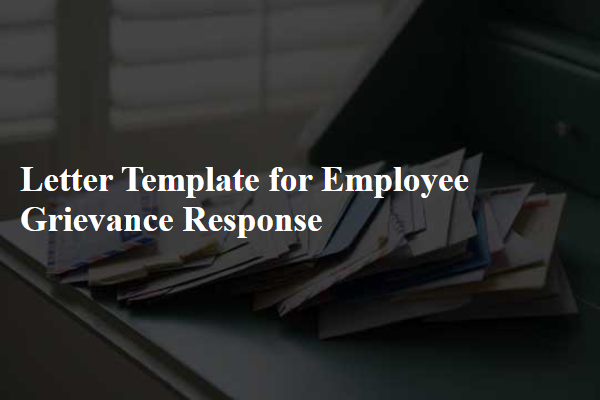
Acknowledge receipt of grievance
The acknowledgment of receipt of a grievance signifies an essential step in addressing employee concerns within an organizational structure. This response typically includes the date of receipt, which may fall within a specified timeline established by company policy. The grievance may relate to various issues such as workplace harassment, discrimination, or unfair treatment within the company environment. Explicitly stating the grievance's reference number of 2023-001 helps in tracking the resolution process effectively. It is crucial to reassure the employee that their concerns are taken seriously, indicating that an investigation will begin promptly, potentially involving the human resources department, known for mediating conflicts and ensuring compliance with employment laws. Additionally, outlining the expected timeframe for follow-up actions can provide clarity and maintain open communication channels, fostering a sense of trust and transparency.
Outline investigation process
The employee grievance process involves several critical phases to ensure a thorough and fair investigation. Initially, the grievance report submitted by the employee is documented in the Human Resources Management System. Subsequently, the appointed investigator, typically an HR professional or a designated manager, reviews the complaint details to frame specific questions. This process may include confidential interviews with the employee, relevant witnesses, and the accused party, ensuring a balanced perspective is established. The investigator also collects supporting documents, such as emails or performance reviews, that can substantiate or refute the claims. After compiling all information, a comprehensive report is drafted, summarizing findings and outlining recommended actions. Finally, the HR department presents the outcome to the employee, ensuring clarity and transparency in the resolution process, while also providing an opportunity for the employee to express any additional concerns.
Address employee's concerns
Addressing employee grievances is essential for maintaining a healthy workplace environment. Effective grievance responses should consider specific issues raised by employees, such as workplace harassment allegations or unjust treatment. Timely and thorough investigations should be conducted in accordance with company policy, documented procedures, and relevant labor laws. For instance, appropriate involvement of the Human Resources department ensures objective assessment of complaints. Additionally, communicating the outcome to the employee in a clear manner can instill confidence in the grievance resolution process. Support systems, such as counseling services, can also be offered to affected employees, further demonstrating the company's commitment to their well-being and satisfaction at work.
Provide resolution or next steps
In addressing employee grievances, a comprehensive approach involves assessing valid complaints, such as workplace harassment, discrimination, or unfair treatment. HR representatives or designated managers should thoroughly investigate claims, ensuring confidentiality and fairness. Documentation of incidents, dates, and individuals involved is essential for accurate evaluation. Following an assessment, proposed resolutions can include conflict mediation, further training for staff, or implementation of new workplace policies. Communication with the aggrieved employee should clarify steps taken, anticipated timelines, and avenues for further escalation if necessary, creating an environment of transparency and support.
Offer further assistance or appeal process
In response to employee grievances, organizations often provide a structured mechanism to address concerns. A grievance typically arises due to workplace issues, which may include workplace harassment, discrimination, or unfair treatment, affecting morale and productivity. Employees should be informed (in clear terms) about the various channels available to resolve their issues, including a detailed explanation of the appeal process. This process often involves submitting a written appeal to a designated HR representative or a grievance committee. Employee satisfaction and well-being are crucial for company culture and productivity. Cooperation and communication are vital. Offer of further assistance may include access to counseling services, mediation sessions, or meeting with a supervisor to clarify the issue.

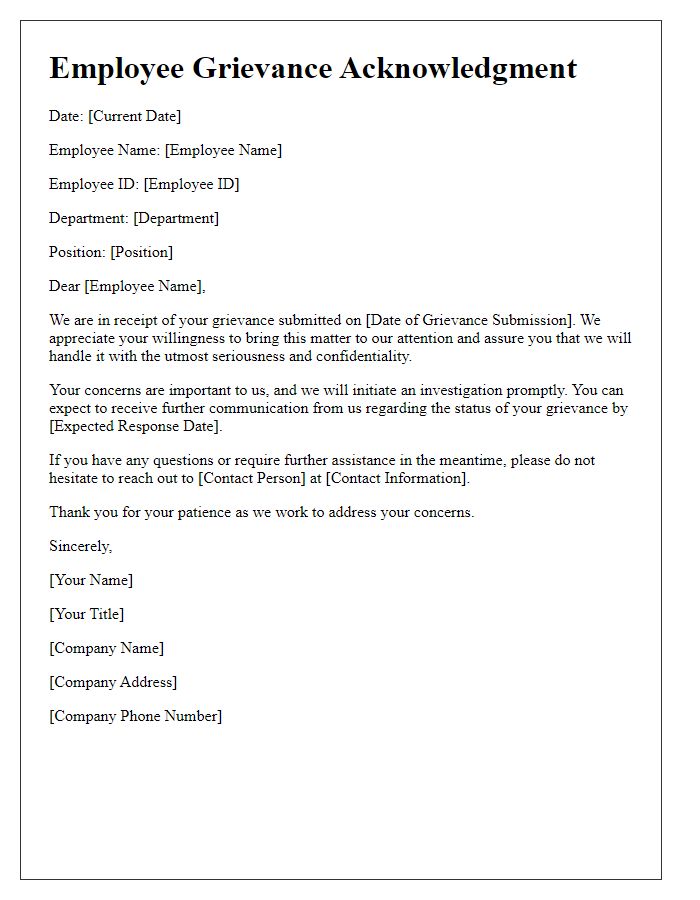
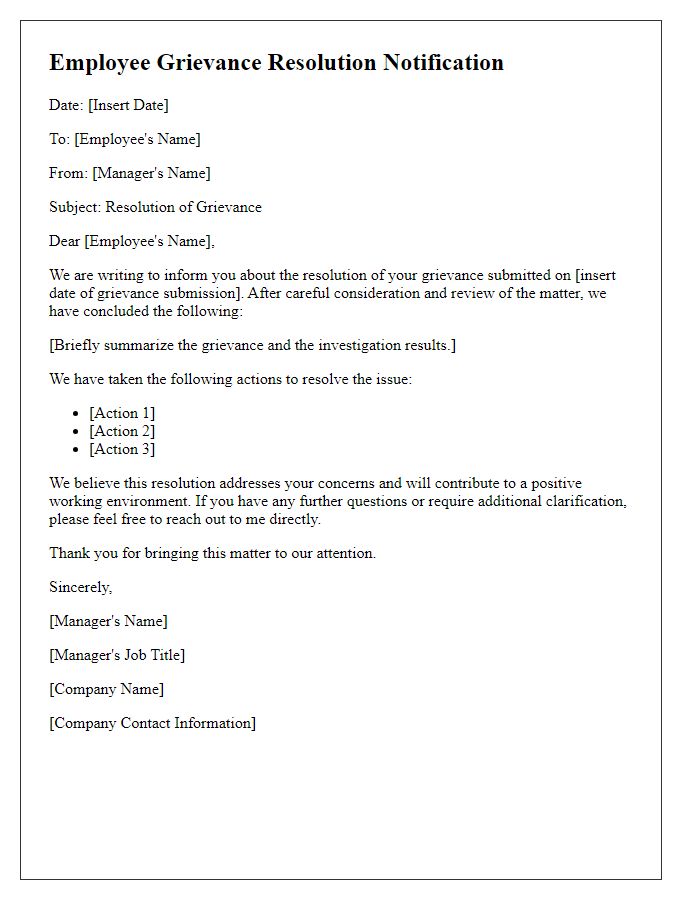
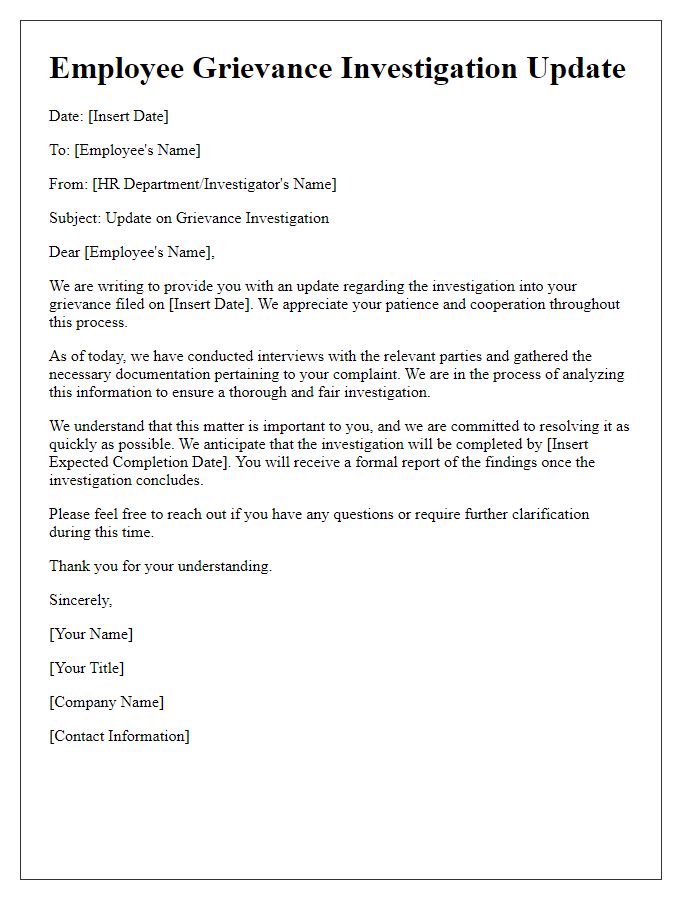
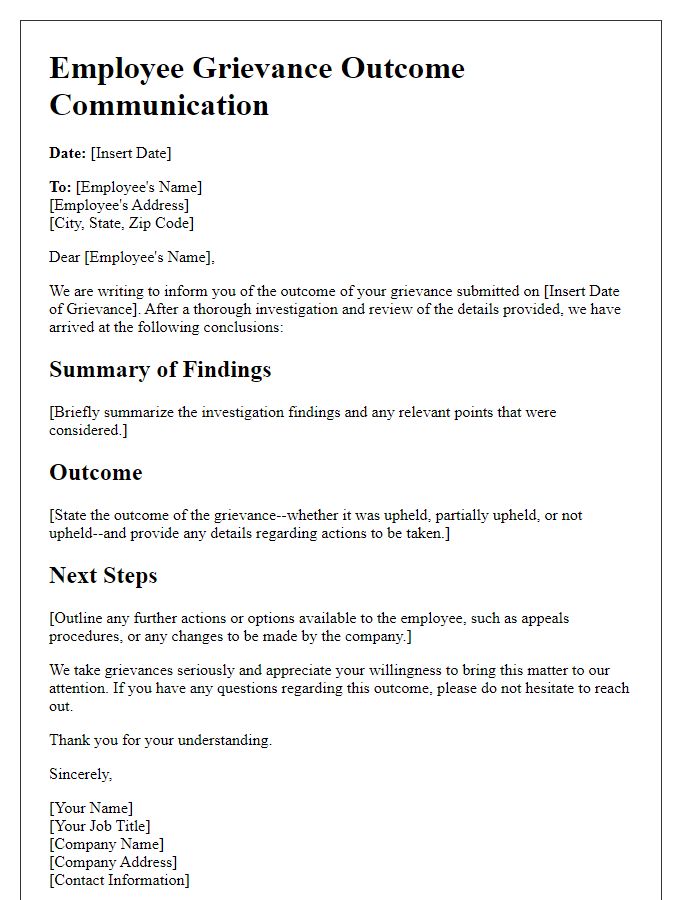
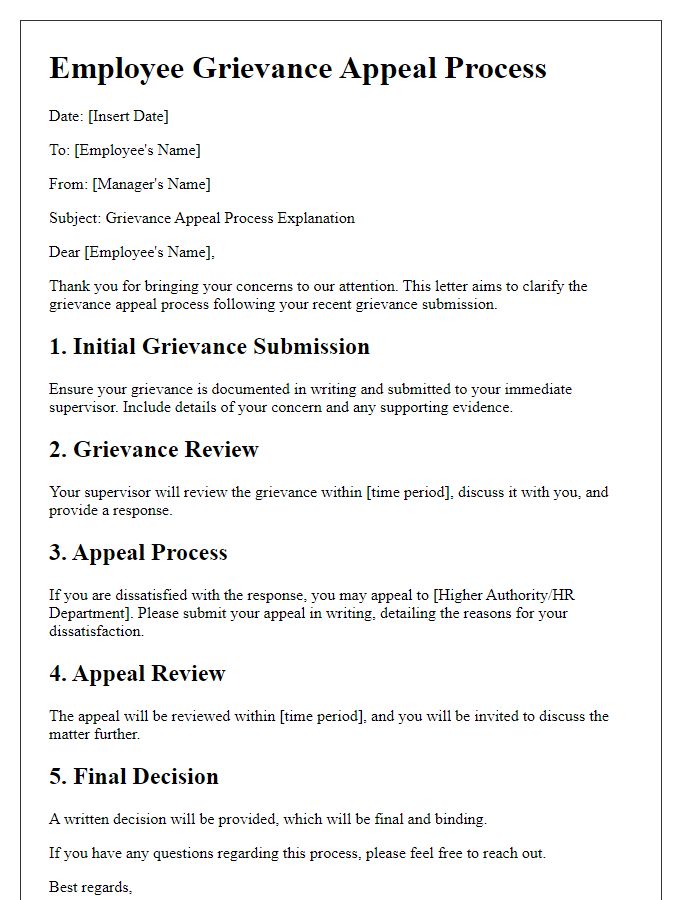

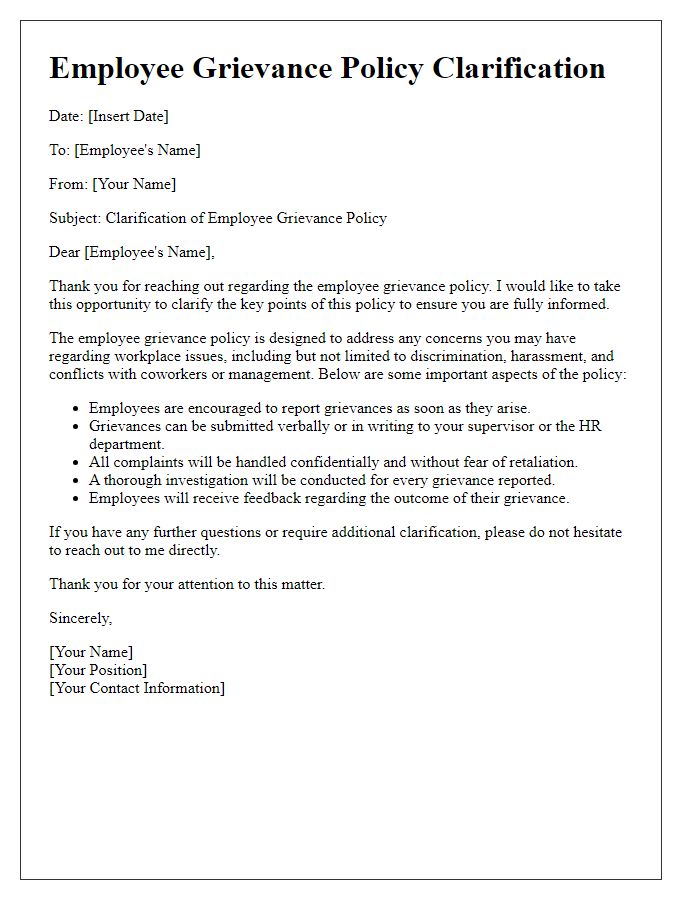
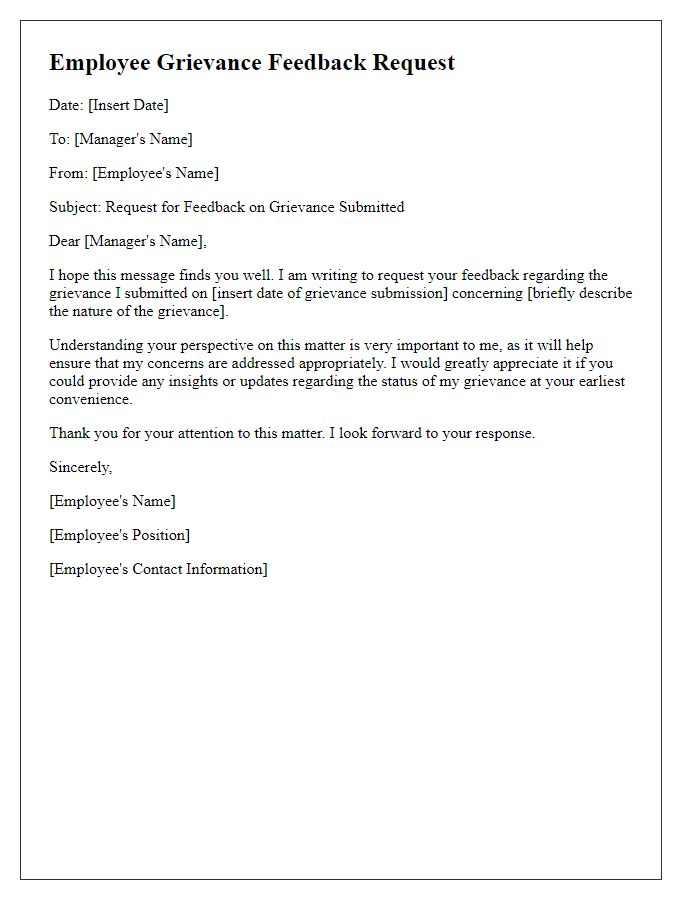
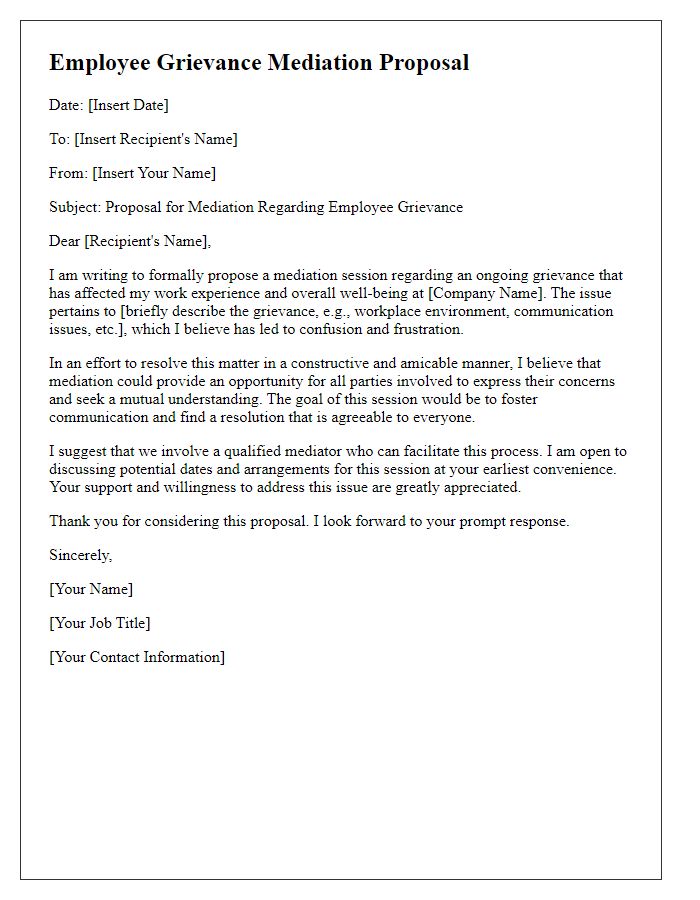
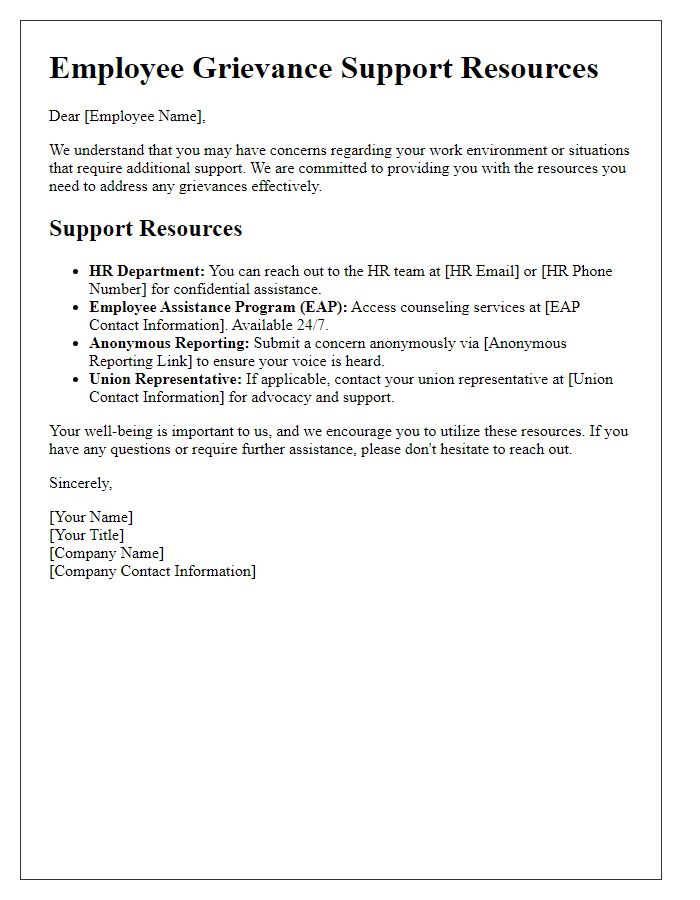

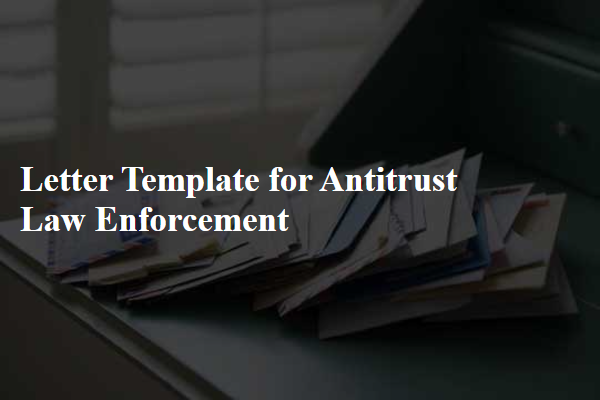
Comments